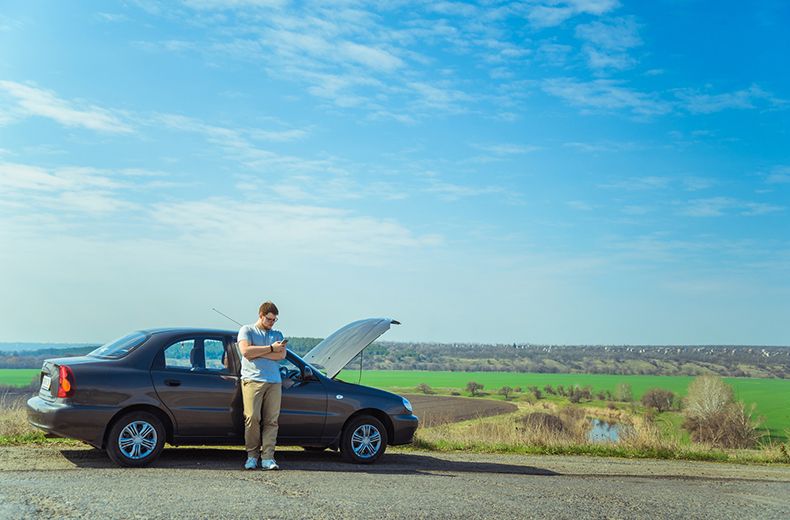With thousands of extra car journeys expected this weekend due to the 30c heatwave, the RAC is warning drivers not to become another breakdown statistic as data shows call-outs go up by as much as 50% in some areas as the mercury rises.
Roads leading to coastal and other popular tourist destinations are most likely to become the scenes of strings of stranded and frustrated drivers whose days out have been ruined because their cars has let them down.
This time last year, the UK was experiencing similarly hot temperatures and the final weekend of June saw the RAC attend twice the expected number of breakdowns in places like North Devon and North Wales, Pembrokeshire, Canterbury and the North York Moors, with a similar picture expected this coming weekend.
Typical causes of hot weather breakdowns include more tyre blow-outs – poorly-inflated tyres or those that are wearing up are more susceptible in the heat – many more engines overhearing, people running out of fuel mid-journey, and even an increase in misfuels as drivers get flustered by the heat at the pumps.

RAC sale – up to 33% off*
• Roadside cover from £5.49 a month†
• We get to most breakdowns in 60 mins or less
• Our patrols fix 4/5 breakdowns on the spot

RAC patrol of the year Ben Aldous said: “This week’s soaring temperatures will also be a recipe for a soaring number of breakdowns in certain parts of the country, and it’s a sad reality that some drivers will likely encounter an unwelcome and unscheduled stop at the side of the road – they will have to hope they can find some safe shelter from the sun, but it could still mean they suffer some daytrip distress.
“Vehicles can suffer all sorts of problems when the mercury climbs, but it’s really those that are older or haven’t been as well looked after that run the risk of getting into the most trouble.
“We also know from previous years that it’s roads to the beaches and other beauty spots like the moors, Lake District and highlands that see the largest numbers of stranded drivers. Yet checking simple things like coolant and oil levels, as well as tyre tread and pressure, can stack the odds of a smooth journey in every driver’s favour and prevent a breakdown happening in the first place.
“Put simply – spending just moments checking things before you drive off could save you hours stuck in the heat at the roadside not doing what you set out to do.”
- Driving without shoes - is it illegal?
- Five surprising things your car does in summer
- Summer driving tips - how to avoid a summer breakdown
Preparing your car for the heat
The RAC recommends drivers remember ‘FORCES’:
- (F)uel – Don’t risk running out of fuel – top up before you set out. More people heading onto the roads in the good weather can lead to traffic jams, especially on routes to the beaches.
- (O)il – check it’s at the right level
- (R)ubber – tyres need to be properly inflated and in good condition to give your car a safe, sure grip on the road
- (C)oolant – this does a vital job in the warmer weather, in ensuring the engine runs at the right temperature. If it’s not between the ‘min’ and ‘max’ levels, this could be the sign of a problem so contact a good garage without delay
- (E)lectrics – you’ll need your lights on during any heavy downpours
- (S)creenwash – helps keep your windscreen clear
Summer driving tips
- Pack enough cold drinks for you and your passengers for any long journey in the heat
- Beware of how hot interior fixtures can be when you get into a car that’s been parked in the sunshine – steering wheels and leather seats can be scorching
- Open the windows before you get into a hot car to let some of the trapped heat out, before putting on the air conditioning when you drive off
- Never leave anyone unattended in a hot car
- Finally, don’t be alarmed by either pools of water forming underneath your car (most likely it’s condensed water from the air conditioning unit) or a slightly noisier engine bay (it’s probably the cooling fan working extra hard)
For more information about how you can avoid a summer breakdown - read our handy guide here.
Broken down without cover? Learn what to do here.
Original release can be found on the RAC Media Centre here.






